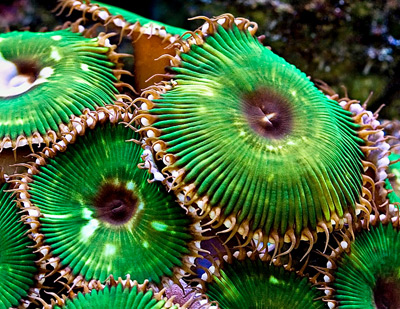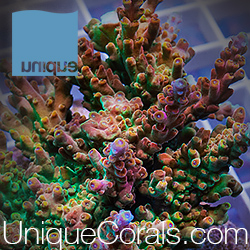
Palythoa grandis
Many of us are inspired to keep marine life for its exotic beauty or interesting behavior. But if we’re being perfectly honest, we have to admit there’s also something intriguing about keeping—and displaying to our friends and family—marine organisms that have dangerous or potentially deadly defense mechanisms, such as venomous spines, potent toxins, or razor-sharp teeth. For those hobbyists who like to flirt with danger, the marine aquarium trade certainly offers its share of prickly and poisonous characters—from venomous fishes to deadly cephalopods to noxious sessile invertebrates.
There are even organisms we can buy that offer stunning beauty and potency in equal measure. Among these best-of-both-worlds critters are many of the zoanthids we’re so fond of keeping in our reef systems. These polyps (most of the ones we keep being from the Zoanthus and Palythoa genera) have much to recommend them, being very hardy and often stunningly beautiful. But some of them also contain a potent neurotoxin, called palytoxin, in their tissues and mucus that can make people very sick or even cause death if they’re not handled properly.
Of course, blithely mentioning that certain popular zoanthids have the potential to sicken or kill people raises a whole host of questions that demand prompt, thorough answers. Among them: What is the nature of palytoxin MORE









0 Comments